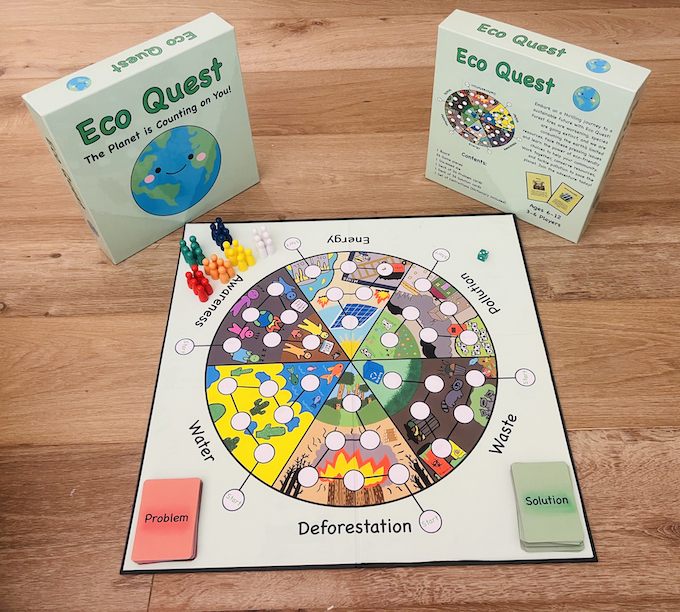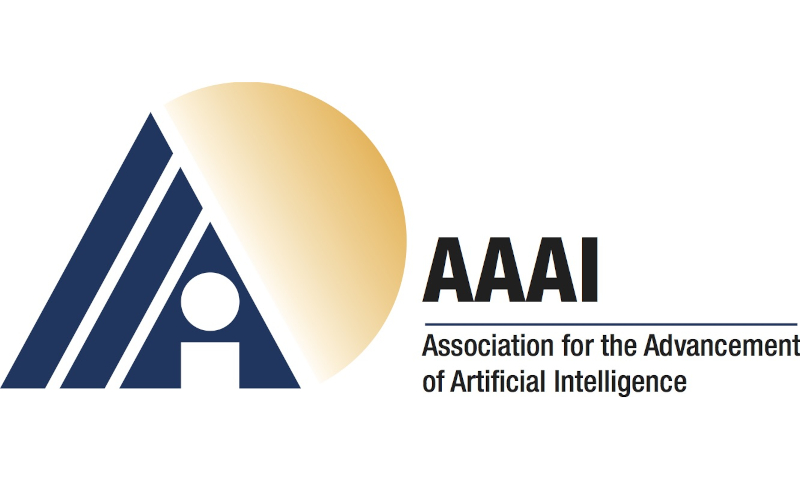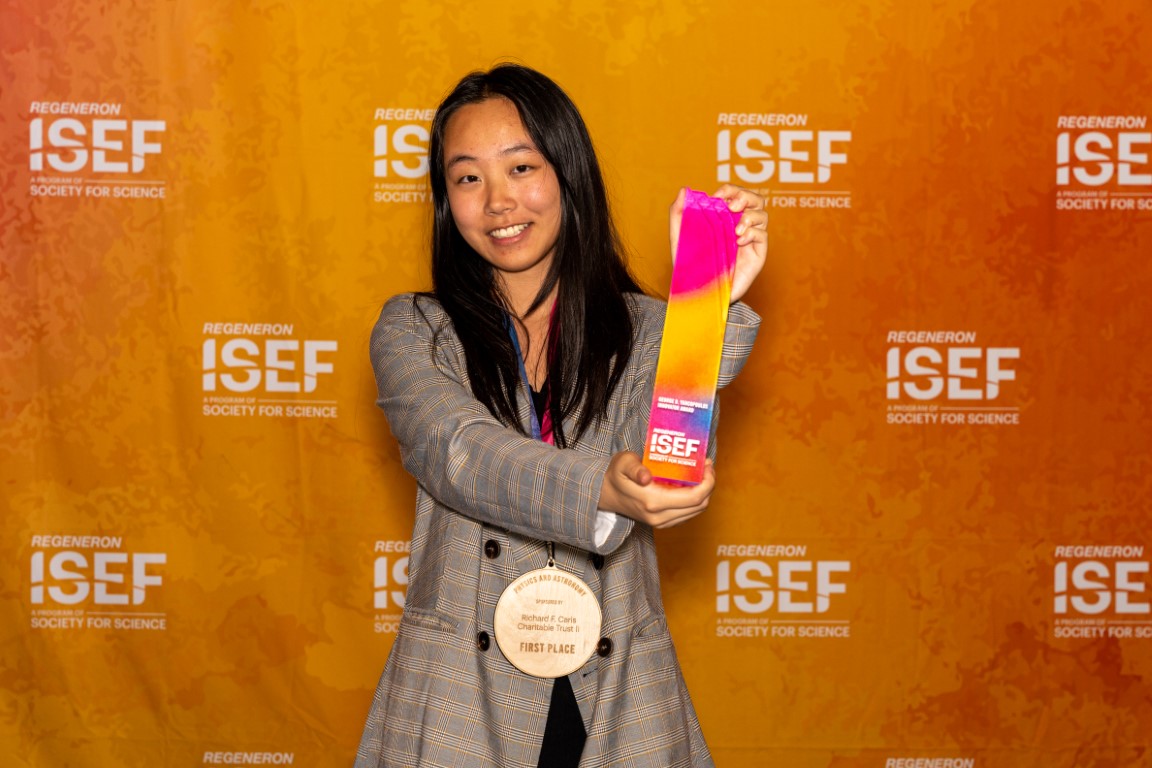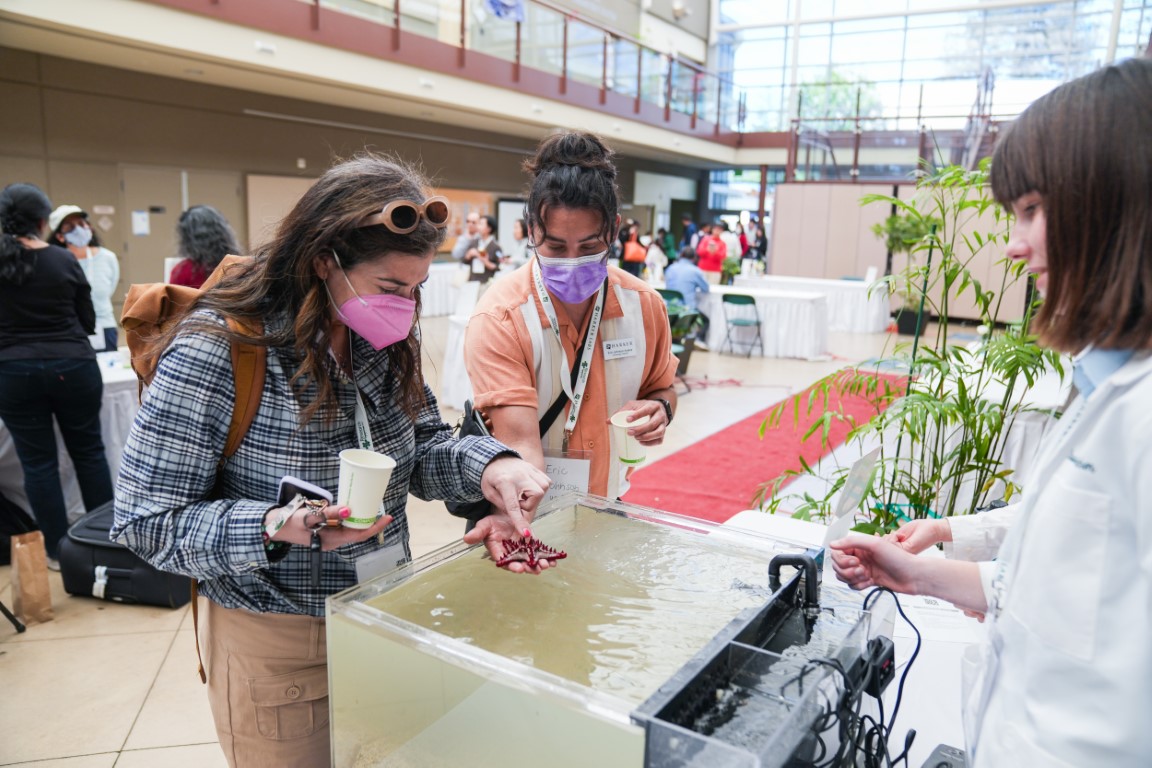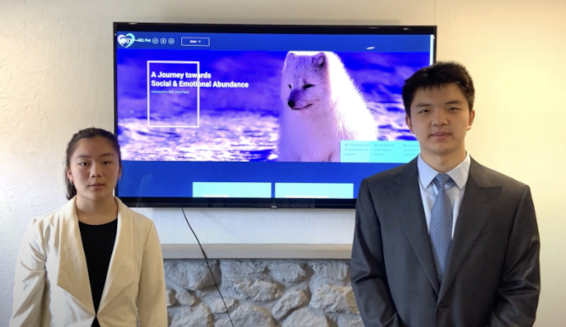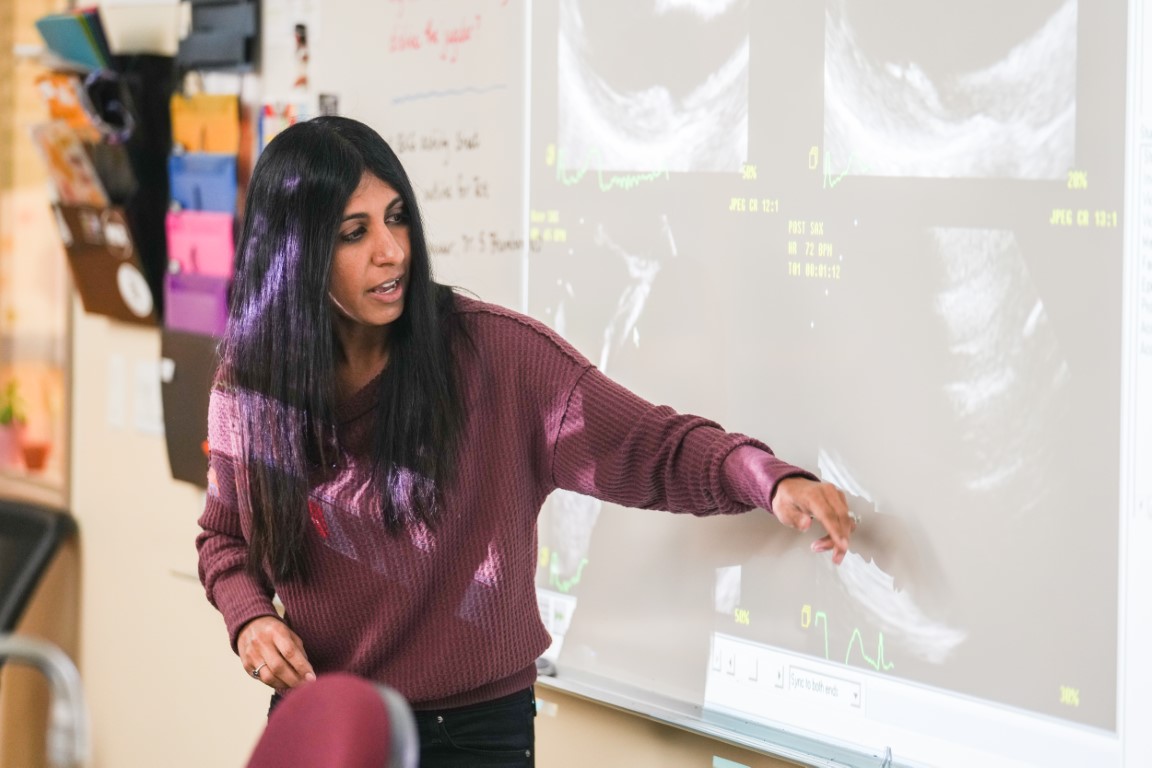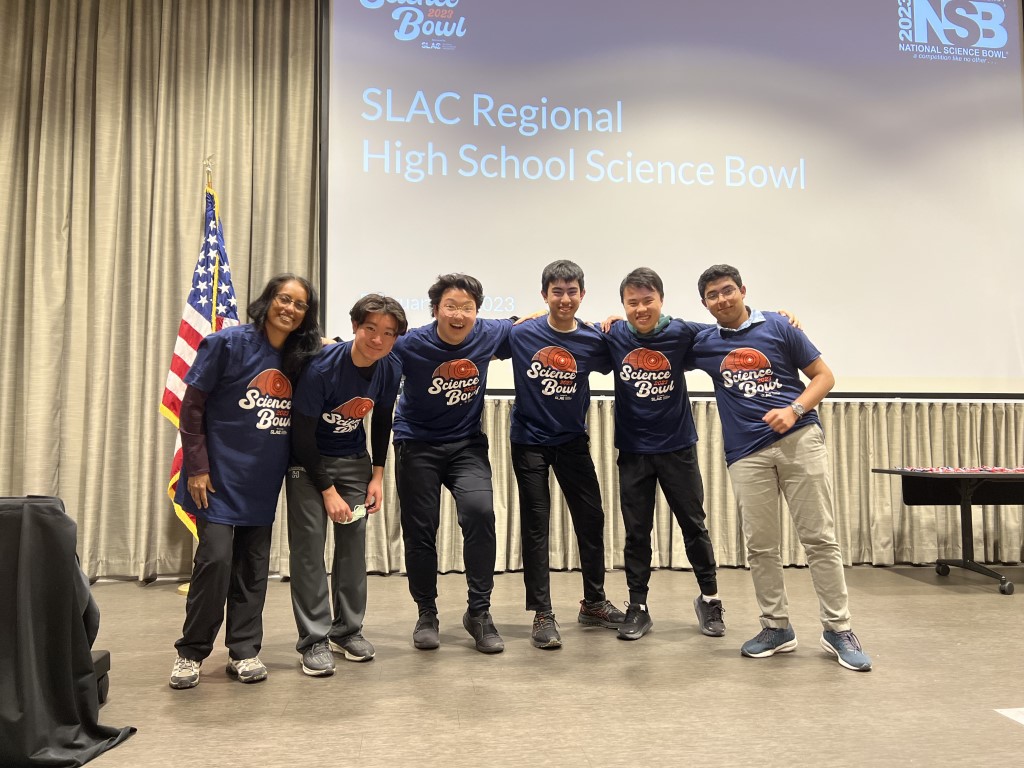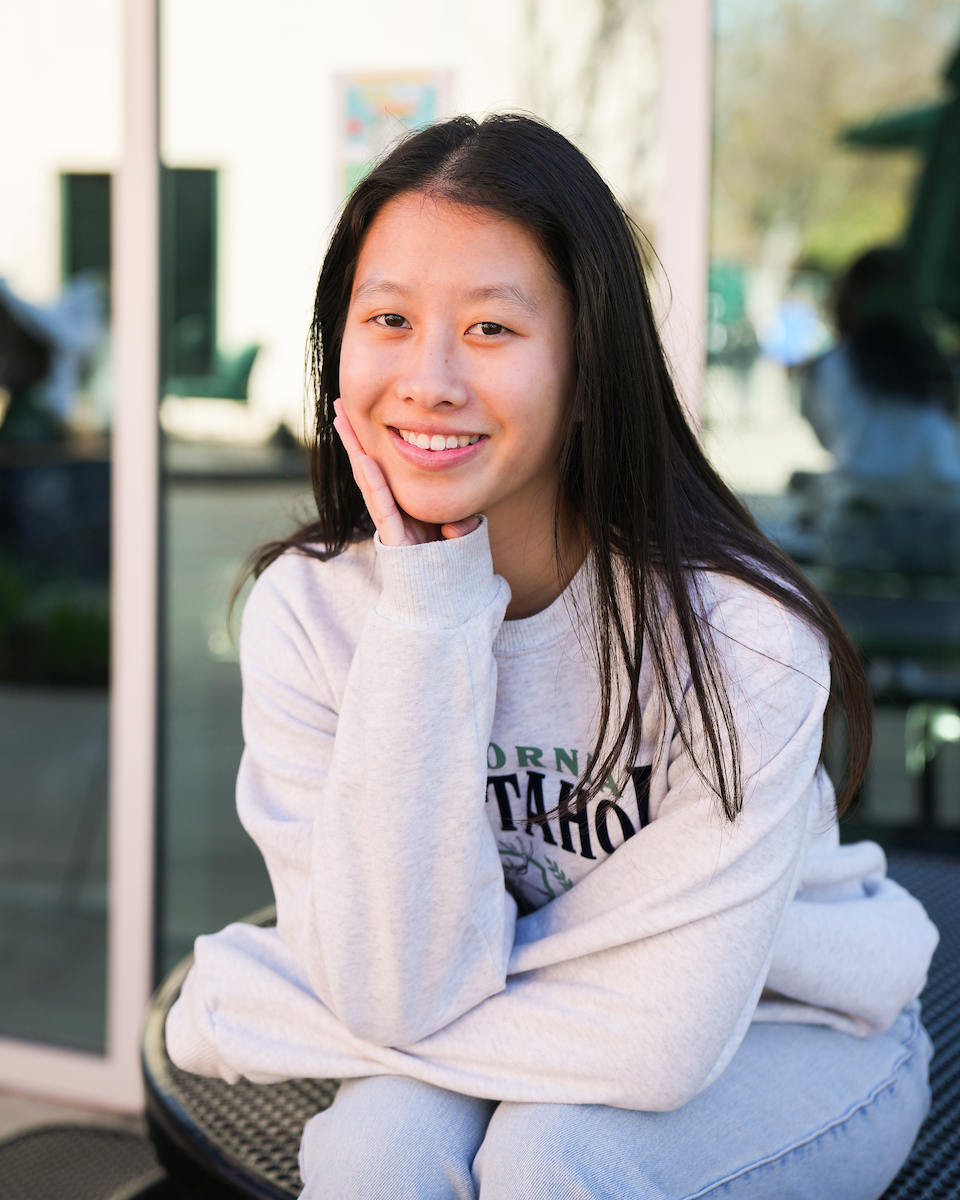Seniors Reshma Kosaraju and Sasha Masson recently developed a board game to teach children about the dangers of – and possible solutions to – climate change.
topscience
Rising senior wins top AI award at ISEF
Earlier this month, rising senior Ella Lan won first place in a special award given out by the Association for the Advancement of Artificial Intelligence (AAAI).
Sixth grader places second in chemistry poetry and art contest
Sixth grader Raeanne Li placed second nationally in the grades 6-8 category of the 2023 Chemists Celebrate Earth (CCEW) Illustrated Poem Contest.
Junior wins top award at int’l science and engineering fair for discovering exoplanet
Junior Kaitlyn Wang received the George D. Yancopoulus Award in the Regeneron International and Engineering Science Fair.
17th Research Symposium promotes “STEM for All”
The 17th Harker Research Symposium on April 15 brought hundreds from the Harker community to the upper school campus to view student research, hear from fascinating speakers, explore a variety of booths and exhibits and more.
Grade 9 student takes first place at national symposium
Ava Bhowmik, grade 9, recently received a first place award at the National Junior Science and Humanities Symposium.
Students win Project of the Year at California Science and Engineering Fair
Alec Zhang, grade 11, and Jingjing Liang, grade 9, were recently awarded Project of the Year in the senior division at the California Science and Engineering Fair.
Alum cardiologist visits upper school for guest lecture
Harker students were given a guest lecture by cardiologist Shalini Bhambani ’02, who gave insight into her profession with a series of case studies.
Harker takes second place at DOE Regional Science Bowl
Harker students Jeremy Ko, Ethan Liu, Jason Shim, Rohan Bhowmik and Arnav Swaroop took second place at the U.S. Department of Energy Regional Science Bowl, held at the SLAC National Accelerator Laboratory at Stanford University.
Senior Sally Zhu named Regeneron finalist
She is now eligible to attend the final stage of the competition, to be held in Washington, D.C., in March.
